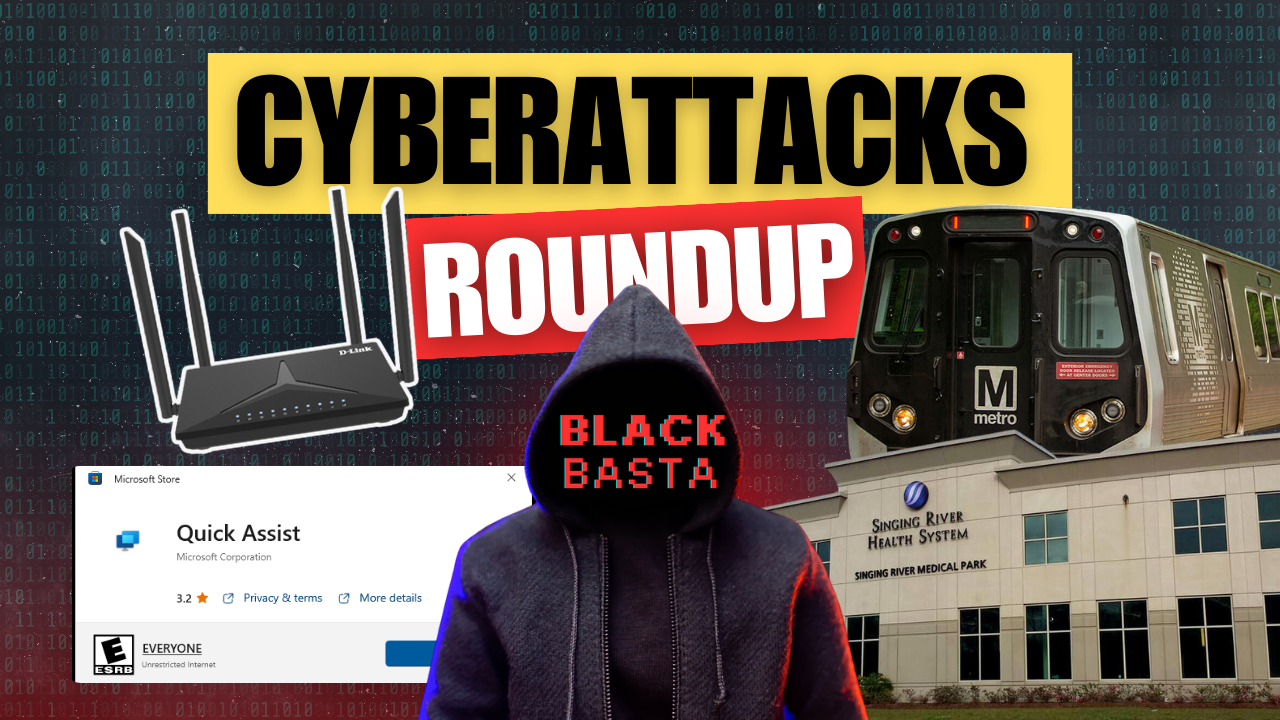The ever-changing cybersecurity landscape keeps us all on our toes. This week has been no different, with developments highlighting both the growing sophistication of cyber threats and the ongoing efforts to combat them. In this blog, we'll break down some of the most significant cybersecurity news stories you need to know about.
Metro DDoS Attack
This week, the Metro system in Washington, DC, experienced a Denial of Service (DDoS) attack, causing their website to be down for several hours. A DDoS attack occurs when attackers flood a website or server with so much traffic that it becomes overwhelmed and unable to function properly. In this case, cybercriminals likely demanded a ransom to stop the attack. The Metro quickly enlisted cybersecurity experts to restore their site and is now working with law enforcement to identify the perpetrators. While this attack was primarily a business disruption, it underscores the vulnerability many organizations face from DDoS attacks unless proactive defenses are in place.
FBI Takes Down BreachForums
In a significant win for law enforcement, the FBI seized BreachForums, a notorious dark web site used by cybercriminals to leak and sell stolen data. The takedown followed the release of sensitive data on Europol, prompting heightened law enforcement scrutiny. The FBI's takeover of the site included provocative imagery of the site's owners behind bars, signaling a clear message to cybercriminals. This seizure disrupts a major platform for illegal data transactions, but the long-term impact remains to be seen as cybercriminals may simply migrate to new platforms.
Black Basta Ransomware Threat
The Black Basta ransomware group caught the attention of the FBI, CISA, and HHS this week, leading to official warnings about their rapid targeting of healthcare organizations. We previously reported on the Ascension Hospital ransomware attack, which is now suspected to be the work of Black Basta. This group employs sophisticated social engineering tactics, inundating targets with spam emails and then impersonating IT support to gain remote access through tools like Windows' Quick Assist. This method bypasses traditional phishing defenses and highlights the need for multi-layered cybersecurity measures.
LockBit Ransomware Campaigns
LockBit, another ransomware group, has been linked to a large-scale phishing campaign leveraging a botnet to send millions of emails. These emails, often containing a simple zip file, pose a significant threat as they can easily slip past less sophisticated spam filters. Additionally, LockBit's administrator has been in the news, and one of the largest botnets has started distributing LockBit payloads, which could lead to a surge in attacks.
Zero-Day Exploits and Patches
Microsoft's May 2024 patch update addressed 61 flaws, including three zero-day vulnerabilities. One significant patch was for a vulnerability exploited by CrackBot malware, which allows attackers to gain full system privileges. This vulnerability was discovered by investigating data uploaded to VirusTotal, underscoring the importance of regular updates and vigilant monitoring for unusual activity.
Remote Work Vulnerabilities
With the rise of remote work, home network security has become critical. A vulnerability in D-Link's EXO AX5400 router, which allows for remote unauthenticated command execution, poses a risk to remote workers using these devices. Companies must consider policies to ensure home network security, such as disabling remote management on routers and providing employees with secure, managed devices.
Singing River Health System Breach
Singing River Health System recently disclosed that a ransomware attack in August 2023 resulted in the theft of data from 895,000 individuals. This breach, involving both patient and employee data, highlights the long-term fallout and costs associated with such attacks. Affected organizations face not only immediate operational disruptions but also prolonged legal and financial repercussions.
As cyber threats continue to evolve, it's clear that both public and private sectors must bolster their defenses and stay informed about emerging tactics used by cybercriminals. The cybersecurity landscape is more challenging than ever, from DDoS attacks and dark web takedowns to sophisticated ransomware campaigns and zero-day exploits.



